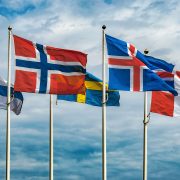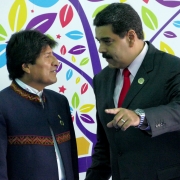Think of the game of chess as a war between two medieval armies. They are equally matched, identical sets of 16 pieces each, and the field of battle is finite with 64 squares. The only differences are the field generals. More specifically their experience, creative abilities, and fortitude. The object of the game is to defeat the opposing king with the fewest casualties, meaning the fewest moves possible. In The Art of War, Sun Tzu teaches “The supreme art of war is to subdue the enemy without fighting.”
This is where it gets tricky, the best move against a weak opponent is different than the best move against a strong one, and neither work against a grandmaster. Sun Tzu continues, “If you know yourself but not the enemy, for every victory gained you will also suffer a defeat.” In chess, to know the enemy is to know their mastery of the possible combination of moves on the chess board. Its estimated the number of possible moves in a game of chess is greater than the number of atoms in the universe, but chess mastery is only concerned with the ones that expedite victory. Cognitive skills and fortitude are the essentials that matter.
In a modern economy, the division of labor and specialization are paramount. In our postmodern economy, if freedom is preserved, technological innovation is limitless. Former world champion and chess grandmaster Garry Kasparov is the Poetic Justice Warrior on the cutting edge of all of it.
Considered the greatest chess player of all time, Kasparov became world champion at age 22, and held the title for fifteen years. He remained the highest rated player in the world until he retired twenty years later, in 2005. However, Kasparov is best known for the match he lost in 1997 to IBM’s Deep Blue computer. At the time, he insisted that computing power could not overcome the creative genius of the world’s best grandmasters. Kasparov didn’t quite know his enemy.
Man Versus Machine, Not!
Like any rational human being, Kasparov was able to process new evidence, test it against his existing propositions, discard false premises, and maintain his principles for living that are inviolable. Active minds do this. As he reflects in a TED Talks presentation,
It was a blessing and curse to be the proverbial man in the man vs. machine competition. No one remembers who failed to summit Mt. Everest before Sir Edmund Hillary. I was Everest. Human creators reached the summit. Deep Blue was the tourist. Nobody remembers that I won the first match.
Capable of 200 million calculations per second, Deep Blue’s hardware had limitless stamina. Yet it was artificial intelligence (AI) – the algorithms embedded in its software – that transferred the cognitive ability of its IBM creators into the only chess move that would eventually stymie the world’s greatest chess player. On the 20th anniversary of standing alone at the precipice of unprecedented Creative Destruction, Kasparov published Deep Thinking: Where Machine Intelligence Ends and Human Creativity Begins,
I make it clear that my loss to Deep Blue was a victory for humans. It’s hard to look at the big picture during times of disruption and rapid change. But the transfer of human labor to technology is the story of human civilization. Our standard of living gets better, we live longer and healthier lives.
Free market economists like Poetic Justice Warrior Jesus Huerta de Soto understand that computer algorithms are best suited for the physical sciences, and a game of chess has many of those characteristics. The pieces are inanimate objects, not innovative actors. The field of play is not dynamic, and the game ends in checkmate, stalemate, concession or draw. No one dies, and the game starts anew. As Kasparov teaches, chess is “a closed system,” and in contrast, “People say, oh, we need to make ethical AI. What nonsense. Humans still have the monopoly on evil. The problem is not AI.”
Setting Man Free From Men
Garry Kasparov, like Poetic Justice Warrior Ayn Rand, was born in what became Soviet Russia. They share that unique and essential perspective, and know their enemy all too well. As Kasparov explains, “In chess the rules are fixed and the outcome is unpredictable, whereas in Putin’s Russia the rules are unpredictable and the outcome is fixed.” For Rand, the outcome is guilt. If the bureaucrat thinks your prices are too high, you are guilty of price gouging, and if your prices are too low, you are guilty of predatory pricing. If they think your prices are competitive, you are guilty of collusion.
The outcome was also explained by Poetic Justice Warrior Frederic Bastiat, “The relationship between persons and legislators appears the same as the relationship between the clay and the potter.” You are to be molded, or else. Rand avers in her 1943 novel, The Fountainhead, “Our country was based on a man’s right to the pursuit of happiness. His own happiness. Not anyone else’s.” Certainly not the potter’s; yet Kasparov, like Rand, has found Putin’s objective of defeating the individual to be alive in America,
I’m enjoying the irony of American Sanders supporters lecturing me, a former Soviet citizen, on the glories of socialism. It corrodes not only the economy but the human spirit itself, and the ambition and achievement that made capitalism possible and brought billions of people out of poverty.
The corrosion of the human spirit negates cognitive skills and fortitude, and is the essential strategy for turning people into chess pawns of potter’s clay – social justice warriors molded by state-run media and education. They march and scream to replace their opportunity for self-creation with their cowardly grievance societies. As an activist for capitalism, Kasparov explains,
A centrally planned economy cannot imitate this engine of creative destruction because you cannot plan for failure. You cannot predestine which two college drop-outs in a garage will produce the next Apple.
As Poetic Justice Warrior Czeslaw Milosz explained, the Russian mechanism (hailed by Sanders and his pawns) is very fragile, yet America’s education and media elites harbor no gratitude that America exists. This passive injustice is that evil described by Kasparov.
Children – Chess – Cognition – Volition – Capitalism
Chess is a game that teaches critical thinking and purposeful action. It enriches the mind of any child with problem-solving skills, long-range planning, and independence. Students learn the capability of each piece and how they work together in a complex system. They learn to identify opportunities, evaluate threats, and take calculated risks. However, its imperative to transfer these skills to open system solutions.
Garry Kasparov has promoted scholastic chess for decades, and upon his retirement from professional chess in 2005, he organized the United Civil Front in Moscow. Its stated goal is an open federal system for free elections, and it stands in direct opposition to the political machine – a closed system, that maintains power for Vladimir Putin, and gets people killed. Kasparov knows his opponent: “To stay in power, Putin does not ask why, he asks why not.” To Kasparov, the difference between Sanders and Putin is communist propaganda. While Sanders is selling its old, failed, deadly concepts to useful idiots,
Putin doesn’t try to sell you anything. Its all about doubts. He’s very good at that. He uses western technology to undermine the free world. It’s all about disruption.
For Kasparov, technology must be harnessed to preserve and promote freedom.
Playing chess well is a marvelous experience, but not an end in itself. As Poetic Justice would have it, Kasparov transcends that, and has some Sun Tzu-quality advice for America, “Removing the moral component from foreign affairs has been a catastrophe. Since 1992, its like a pendulum. It’s very important to recover American prestige in the world.”













